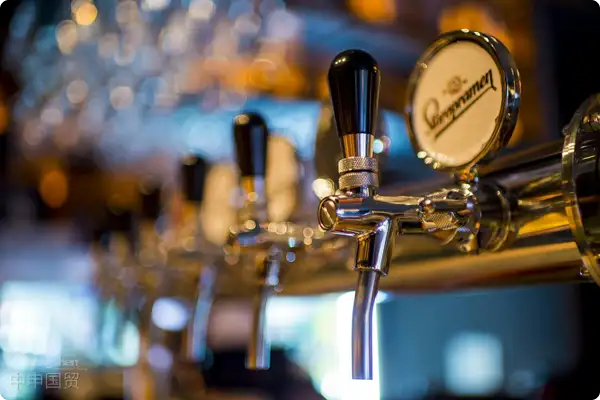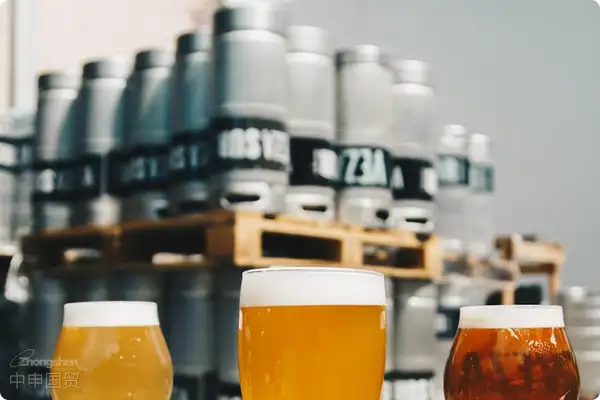<ruby id="x3xx0"></ruby>
<kbd id="x3xx0"></kbd>
Why do imported beer customs clearances always get stuck on 'shelf life'?
日韩精品 中文字幕 有码系列 |
国产成人一区二区青青草原
|
手机在线观看国产一区二区三区 |
在线播放国产久草性av |
国产精品色午夜免费视频69 |
精品国产精品久久一区免费式
|
亚洲中文字幕中文字幕中文字幕 |
国产亚洲欧美一区二区精 |
久久久国产成人精品二区 |
亚洲精品中国一区二区久久 |
国产日产欧美一区二区在线观看 |
色综合一区二区日本韩国亚洲 |
国产午夜精品理论片免费视频 |
私人小影院网站午夜在线观看 |
国产精品蜜臀av在线一区 |
一区二区国产精品三区在线电影 |
亚洲情色av在线免费观看 |
日韩一区日韩二区日韩三区 |
久久久一区二区三区999 |
亚洲精品成人天堂一二三 |
亚洲精品区国产精品99 |
亚洲人成一区二区三区不卡 |
免费在线观看91精品美女 |
久久这里只有精品一区二区三区 |
欧美老人激情五月综合网 |
日韩免费高清中文av |
午夜视频久久播五月婷婷 |
日本一区二区三区不卡在线看
|
亚洲十八禁精品成人一区二区 |
日韩中文字幕有码午夜美女 |
精品女同一区二区三区亚亚洲洲 |
欧美一区二区三区亚洲九色 |
欧美黄色免费网站在线观看 |
后入亚洲美女一区二区三区
|
久久精品国产88久久综合张津瑜 |
国产一区二区自拍偷拍视频 |
欧美大陆日韩一区二区三区 |
精品美女视频一区二区三区
|
免费在线观看91精品美女 |
欧美日韩国产精品系列区 |
精品国产18久久久久二 |
欧美变态口爆一区二区三区
|
欧美视频在线一区二区三区 |
亚洲国产色一区二区三区 |
91色综合久久夜色精品国产
|
亚洲一区二区三区 日本
|
视频一区二区不中文字幕 |
日本一区二区三区免费不卡视频
|
人妻少妇精品一区毛二区
|
欧美黄色免费网站18禁久久 |
新片青青澡久久久久久久久精品 |
欧美一区二区三区综合色 |
日本无限不卡1区2区3区 |
日韩精品成人av免费看 |
日韩十八线网站操操搞黄色 |
99久久精品日本一区二区免费
|
日本一区欧美二区国产三区 |
国产美女直播在线一区二 |
久久精品一区二区66 |
亚洲精品区国产精品99 |
久久精品国产亚洲av蜜臀 |
久久国产精品骚熟女av |
亚洲精品涩涩在线观看 |
日本黄色中文字幕不卡在线 |
亚洲五月六月丁香激情网站 |
日本一区二区 在线视频 |
中文字幕 日韩经典 人妻 |
日韩亚洲高清一区二区三区 |
加勒比久久伊人欧美国产 |
五月婷婷六月丁香在线播放
|
国产精品色午夜免费视频69 |
国产黄片一区二区三区四区 |
99久久精品免费看蜜桃 |
国产欧美日韩综合二区三区 |
欧美日韩国产欧美日韩国产欧美日韩
|
日韩欧美亚洲国产精品字幕久久久
|
色哟哟一区二区国产精品 |
欧美大陆日韩一区二区三区 |
中文字幕欧美老熟妇一区二区 |
亚洲精品区国产精品99 |
欧美巨大精品一区二区三区 |
国产另类av一区二区三区 |
亚洲va欧美va人人爽高清 |
欧美成人午夜一区二区三区 |
国产中文字幕高清在线观看 |
日韩亚洲欧美中文字幕在线观看 |
亚洲国产成人精品毛片九色 |
久久精品成人一区二区三区蜜臀 |
激情综合网五月六月丁香国产 |
久99精品免费观看视频 |
国内精品自线一区二区三区视频
|
欧美日韩精品一区二区中文字幕 |
99久在线国内在线播放免费观看 |
国产综合久久久一区二区三区 |
9l精品国产高清一区二区三区
|
久久亚洲中文字幕精品熟女一区 |
亚洲一区二区三区高清影片
|
大香蕉欧美人妻一二三区 |
国产一区二区三区 视频 |
老司机精品成人免费视频 |
亚洲精品成人天堂一二三 |
韩国三级华丽外出在线观看 |
亚洲av中文有码免费观看 |
男人av天堂男人的网站 |
91久久国产综合久久91 |
欧美亚洲一区二区久久播 |
欧美在线不卡视频每天更新 |
日韩欧美一区二区三区中出内射 |
适合一家人看的国产电影 |
久久天天躁夜夜躁狠狠躁 |
亚洲第一欧美一区二区精品 |
中文高清在线中文字幕日韩 |
一区二区三区四区欧美日韩日本道 |
国产伦精品一区二区三区2 |
黄色三级电影一区二区三区四区 |
青青草亚洲在线一区观看 |
91精品久久久久久粉嫩 |
成人av一区二区三区免费在线 |
欧美人在线一区二区三区 |
91在线精品免费一区欧美直播 |
欧美中文字幕一二三四乱码
|
国产亚洲加勒比久久精品 |
91精品国产薄丝高跟在线播
|
久久精品国产精品亚洲38 |
午夜国产三级一区二区三 |
日本加勒比中文字幕在线观看 |
国产精品性色一区二区三区在线蜜
|
手机在线观看国产一区二区三区 |
亚洲天堂男人天堂一区二区
|
国产日本欧美在线一区二区 |
成人黄色小视频下载网站 |
亚洲高清日韩精品一区二区三区网
|
91色综合久久夜色精品国产
|
国产精品宅福利无圣光视频 |
日韩不卡一区二区在线观看 |
花野真衣在线观看av中出 |
国产一区二区三区 视频 |
日韩不卡一区二区三区四区 |
日本免费一区二区三区视频在线 |
蜜臀av一区二区三区蜜乳 |
国产二区三区在线观看视频 |
欧美一级高清片国产特黄大片一
|
日本一区二区不卡免费观看
|
日韩欧美一区二区精品在线看
|
亚洲精品国产成人久久精品网 |
日本免费一区最新在线观看 |
欧美日韩精品视频一区二区三区四区
|
国产女人乱人伦精品一区二区 |
男人av天堂男人的网站 |
欧美日韩激情在线看片亚洲 |
久久久久精品久久综合av |
欧美一区二区三高清在线观看 |
日本高清不卡电影一区二区
|
国产女同av一区二区三区 |
欧美在线不卡视频每天更新 |
国产美脚交足视频在线观看 |
顶级尤物极品女神福利视频 |
久久这里只有精品一区二区三区 |
亚洲国产精品久久男人天堂
|
精品久久久久久人妻熟妇 |
国产无套精品白浆在线观看 |
精品久久国产老人久久综合 |
久久国产精品骚熟女av |
在线播放国产久草性av |
97色伦在色在线播放免费 |
欧美精品久久一区二区三区四区
|
欧美精品高清在线一区二区三区 |
花野真衣在线观看av中出 |
国产高清精品免费在线观看 |
人妻少妇精品一区二区三区视频 |
尤物免费视频网站在线观看 |
欧美精品欧美一区二区精品久久久 |
日韩人妻精品一区二区三区在线 |
精品国产18久久久久二 |
美女性感黄网站视频久久久 |
国产欧美精品区一区二区三 |
真实国产老熟女粗口对白 |
亚洲精品九九九人妻av |
精品一区二区三区视频男人吃奶 |
亚洲欧洲日韩一区二区三区 |
亚洲综合精品一区二区三区 |
亚洲欧美人成综合在线另 |
疯狂欧美牲乱大交777 |
国产激情澎湃视频在线观看 |
亚洲国产欧美在线人成人
|
欧美一区二区三高清在线观看
|
亚洲国产成人精品毛片九色 |
激情综合网五月激情俺也去 |
日本牲交大片在线一区二区 |
午夜性色一区二区三区不卡视频
|
在线播放国产久草性av |
顶级尤物极品女神福利视频 |
亚洲欧美日韩精品免费观看 |
日韩在线观看中文字幕一区二区 |
中文字幕欧美精品人妻一区 |
日韩亚洲欧美中文字幕在线观看 |
同房后女生下面有黄色分泌物
|
网友自拍偷拍视频一区二区 |
亚洲欧美日韩综合第一第二区 |
99精品免费久久久久久久久 |
日本伦理在线观看中文字幕 |
黄色欧美精品一区二区三区 |
欧美一区二区精品久久久 |
一区二区三区日韩欧美国产 |
欧美亚洲国产日韩品久久 |
欧美激情欲高潮视频高清 |
蜜臀人妻精品一区二区免费 |
亚州中文字幕乱码中文字幕
|
婷婷激情综合亚洲五月色
|
国产日韩欧美一区二区在线高清 |
国产一区免费在线观看99 |
中文字幕一二三四区亚洲乱码 |
女同性恋精品一二三四区 |
黄色影院在线观看一区二区 |
亚洲欧美日韩中文字幕高清
|
国产精品久久久精品一级 |
欧美国产一区二区三区在线播放 |
亚洲美女日韩精品色图在线视频 |
国产精品69堂凸凹视频 |
久久这里只有精品好国产
|
国产拍欧美日韩视频一区 |
日韩精品一区二区三区色 |
日本大香蕉一本到免费无一码
|
一本之道av免费在线观看 |
91视在线国内在线播放 |
99精品这里只有免费精品 |
日本大香伊一区二区三区 |
一级a做爰视频在线观看 |
91香蕉视频在线观看污污污 |
亚洲欧美人成综合在线另 |
亚洲欧洲日韩国产免费 |
日韩中文字幕久久一二三区 |
88精品视频一区二区三区四区 |
人妻体体内射精一区二区 |
久草片免费福利资源视频总站 |
欧美在线不卡视频每天更新 |
亚洲区激情区图片小说区 |
亚洲十八禁精品成人一区二区 |
国产另类av一区二区三区 |
91精品国产亚洲爽啪在线影院 |
日韩国产一区二区三区av |
国产亚洲精品久久久久久久久动漫 |
久久精品久久精品久久精品 |
女同熟女少妇同性少妇女同 |
伊人婷婷涩六月丁香七月 |
深深婷婷久久爱做狠狠天天 |
国产无人区码一码二码三码区别 |
欧美精品一区二区日韩精品 |
国内精品自线一区二区三区视频
|
网友自拍偷拍视频一区二区 |
91青青青手机频在线观看 |
天天天天天日夜夜夜夜夜夜操 |
欧美电影日本电影国产电影 |
欧美巨大精品一区二区三区 |
日本男女啪啪啪一区二区三区
|
在线精品日韩亚洲欧一二三区
|
国产精品久久一区二区三区青青 |
久久99国产综合精品伦理片 |
一区二区三区三级18岁看的 |
欧美不卡一区二区在线视频 |
欧美电影日本电影国产电影 |
91亚洲国产成人久久精品蜜臀
|
亚洲av精品一区二区三区四区 |
精品美女视频一区二区三区 |
久久久久精品久久综合av |
91久久精品一区二区三区大 |
亚洲欧美日韩在线精品2区 |
国产在线精品一区在线观看麻豆 |
亚洲av午夜精品久久久 |
国产精品国产三级国产av主播
|
久久综合九色综合88中文字幕有码 |
国产精品久久久亚洲天堂 |
亚洲av噜噜在线最新网站 |
久久精品女人天堂av免费版 |
青青草亚洲在线一区观看 |
日本无限不卡1区2区3区 |
亚洲国产精品久久久二区 |
国产乱人精品视频69av |
亚洲欧美国产乱子精品观 |
天天操天天干天天干天天操 |
一区二区三区中文字幕乱码 |
国产亚洲欧美另类久久久 |
日韩a国产v亚洲欧美精品 |
五月天丁香色婷婷中文字幕 |
日韩av免费高清在线观看 |
日韩精品免费不卡av一区二区 |
国产丝袜美女av一区二区三区 |
亚洲十大美女色爽av毛片下载 |
欧美精品国产一区二区免费 |
都市激情校园春色亚洲成人 |
国产精品国产三级农村妇女 |
黄色av网址网站能看的 |
成人精品精品视频在线播放 |
不卡国产精品爽黄69天堂 |
成a人片亚洲日本久久69 |
国产在线视频欧美一区二区三区 |
一区二区三区四区蜜桃 |
青草伊人久久综在合线亚洲 |
欧美黄色男人日女的阴道 |
色综合天天综合网国产人
|
国产欧美一区二区三区网站 |
小泽玛利亚影片在线观看 |
91精品国产综合久久香蕉观看 |
av网站在线免费观看入口 |
国产精品久久永久免费看 |
亚洲精品一区二区三区免 |
国产一区二区三区精品在线观看
|
欧美日韩精品一本二本在线 |
日本中文字幕视频在线观看 |
激情综合网五月激情俺也去 |
国产欧美在线一区二区三 |
欧美中文字幕精在线不卡 |
国产欧美精品区一区二区三 |
欧美国产精品久久久免费 |
在线精品国产亚洲av日韩 |
欧美一区二区精品人妻 |
一区二区日韩精品中文字幕 |
久久精品成人一区二区三区蜜臀
|
五月天丁香色婷婷中文字幕 |
国产亚洲成人av看黄在线观看 |
午夜国产三级一区二区三 |
一区二区三区中文字幕四季 |
成人免费av中文字幕电影 |
久久精品亚州一区二区三区 |
人妻在线视频一区二区三区 |
日本一区二区三区视频在线播放 |
精品久久久国产成人久久综合一
|
免费亚洲色图久久综合网 |
日韩欧美国产在线看免费 |
疯狂欧美牲乱大交777 |
国产91色综合久久免费分享 |
亚洲精品色婷婷在线观看 |
花野真衣在线观看av中出 |
国产爽爽爽爽爽爽爽爽爽 |
精品视频美女一区二区三区 |
亚洲国产一区二区在线网站网址 |
国产亚洲欧美另类久久久 |
51国产午夜精品免费视频 |
9l精品国产高清一区二区三区 |
国产精品一区二区三区色噜噜 |
亚洲综合色就色在线观看 |
日韩a国产v亚洲欧美精品 |
日本东京热久久成人免费电影 |
99久在线国内在线播放免费观看 |
婷婷六月开心六月色六月 |
91精品国产薄丝高跟在线播 |
97精品久久久中文字幕 |
国产三级在线播放视频不卡 |
一区二区国产精品三区在线电影 |
欧美一区二区三高清在线观看 |
国产主播一区二区三区在线观看 |
国产欧美国产精品第二区 |
天堂资源网一区二区三区 |
亚洲av中文有码免费观看 |
国产麻豆精品电影在线观看
|
国产精品亚洲精品日韩已满十八小
|
亚洲av永久精品毛片天堂 |
亚洲午夜一级艳片欧美精品 |
欧美大陆日韩一区二区三区 |
一区二区三区四区av中文字幕 |
国产欧美一区二区三区不卡高清 |
亚洲区激情区图片小说区 |
国产女同av一区二区三区 |
欧美成人午夜电影在线观看 |
久久精品店一区二区三区 |
久久久精品一区二区三区大全 |
欧美日韩激情在线看片亚洲
|
亚洲精品涩涩在线观看 |
亚洲日本精品麻豆一区国产 |
美女成人亚洲黄色福利视频 |
影音中文字幕av资源在线 |
黄色三级av在线免费播放 |
中文字幕高清在线一区二区不卡 |
国产流白浆一区二区三区免费视频 |
欧美日韩亚洲中文字幕一区 |
最近中文字幕高清免费大全 |
亚洲国产成人久久综合小说 |
午夜性色一区二区三区不卡视频
|
亚洲国产成人久久一区二区三区 |
妖精视频一区二区三区四区 |
亚洲产国偷v产偷v自拍一区 |
欧美日韩一区二区午夜福利 |
日韩欧美中文字幕1234区 |
在线精品日韩亚洲欧一二三区 |
91在线精品免费一区欧美直播
|
91亚洲欧美综合高清在线 |
亚洲色图国产精品一区二区三区 |
亚洲毛片av不卡一区二区三区 |
欧美日韩3一区二区三区精品 |
国产在线观看精品区一区 |
久久精品一区二区三区资源网 |
欧美精品久久一区二区三区四区
|
99久久一区二区三区免费 |
欧美一区二区黄片免费观看 |
国产大学生自拍视频在线 |
妖精视频一区二区三区四区 |
日韩人妻精品久久久久久 |
亚洲毛片av不卡一区二区三区 |
国产成人精品综合久久久久换脸 |
国产精品福利网站在线观看 |
欧美一区二区三区免费观看视频
|
99精品这里只有免费精品 |
不卡在线一一区二区三区91
|
999精品自产国产免费 |
欧美国产成人久久精品直播 |
一区二区精品电影在线观看 |
欧美精品一区二区三区在线看午夜
|
亚洲av毛片一区二区三区影视 |
亚洲精品久久久噜噜噜久久 |
久久亚洲中文字幕精品熟女一区 |
亚洲和欧洲一码二码区哪 |
精品久久国产老人久久综合 |
亚洲精品一区二区三区四区av |
中文字幕日韩欧美日韩在线 |
欧美色偷偷在线视频播放
|
欧美变态口爆一区二区三区 |
久久99久久久国产精品 |
新片青青澡久久久久久久久精品 |
亚洲欧洲成人va在线观看 |
成人精品一区二区三区电影黑人 |
欧美黄片一区二区三区在线观看
|
青青草亚洲综合成人一区 |
99riav国产精品视频一区 |
91精品国产91久久久久久 |
午夜激情丝袜美腿诱惑影院 |
精品一区二区三区高潮视频 |
婷婷99精品国产97久久综合
|
亚洲欧美日韩欧美中文字幕 |
国产精品中文字幕免费观看 |
久久精品国产热久久精品国产亚洲 |
蜜桃视频一区二区三区在线观看 |
欧美丰满人妻一区二区三区 |
蜜臀av在线精品国自产拍
|
日韩乱码免费一区二区三区
|
日韩欧美一区二区三区三 |
国产成人精品亚洲高清在线 |
999中文视频在线观看 |
国产亚洲成人av看黄在线观看 |
久久999欧美日韩国产 |
国产精品宅福利无圣光视频 |
av色先锋音影一区二区啪啪操 |
手机在线一区二区三区观看
|
狠狠人妻久久久久久综合密桃
|
国产无摭挡又爽又色又刺激 |
欧美精品国产精品日韩系 |
欧美制服丝袜国产日韩一区 |
亚洲人成网站18禁止天堂 |
99re热在线视频精品观看 |
香蕉91成人一区二区三区网站 |
精品一区二区免费视频蜜桃 |
国产精品一区二区色蜜蜜 |
日本黄色亚洲成人日韩欧美 |
成人黄色小视频下载网站 |
亚洲综合色就色在线观看 |
激情五月婷婷丁香久久综合网
|
国产午夜精品一区二区三区不卡 |
最好看的日韩中文字幕电影 |
日韩精品毛片一区到三区 |
日本无限不卡1区2区3区 |
欧美亚洲一区二区久久播 |
国产精东av剧情在线一区二区 |
黄色a级三级三级三级的电影
|
国产免费一区二区三区性色 |
青青久在线视频视频在线 |
欧美日韩久久久久免费看 |
久久精品国产亚洲av久 |
尤物免费视频网站在线观看 |
婷婷99精品国产97久久综合
|
欧美精品一区二区三区在线看午夜
|
精品亚洲午夜久久久久四季 |
一区二区精品电影在线观看 |
19久久久国产一区二区 |
欧美激情精品久久久高清 |
日韩一区二区三区四区在线观看视频
|
亚洲国产精品久久久av |
在线观看特黄片一区二区二区 |
国产亚洲精品久久久一区 |
亚洲国产精品有码一区二区 |
久久国产亚洲精品超碰热 |
中文字幕黄色在线免费观看 |
亚洲国产精品久久久av |
97视频在线观看男人的天堂 |
国产亚洲一区二区三不卡 |
色呦呦免费观看一区二区 |
久久国产精品一区二区三区精品 |
久久精品亚洲熟女av蜜謦 |
久久久精品一区二区三区大全
|
国产亚洲av午夜在线路线 |
久久久精品午夜免费不卡 |
亚洲天堂一区二区三区免费观看
|
日韩 中文字幕高清最新 |
美日韩人妻精品一区二区三区 |
亚洲十八禁在线免费观看 |
久久精品一区二区66 |
一本色道69色精品综合久久 |
精品国产网址免费在线观看 |
亚洲av极品男人的天堂观看 |
在线看片日本免费一区二区 |
久超在线精品av一区二区三区 |
色婷婷在线免费观看视频
|
精品国产污免费网站入口 |
国产欧美日韩在线一区二区 |
亚洲av噜噜噜一区二区三区 |
一本色道69色精品综合久久 |
国产精品国产三级国av在线观看
|
伊人久久大香线蕉综合bd高清
|
欧美精品秘密入口一区二区三区 |
国产乱码欧美乱码在线视频 |
黄页男女视频网址大全免费观看
|
国产无摭挡又爽又色又刺激 |
制服丝袜中文字幕一区二区 |
日本高清二区视频久二区 |
亚洲欧美日韩精品中文字幕在线
|
欧美日韩精品一区二区在线 |
欧美视频黄页大全在线观看 |
成人污污视频在线观看网站
|
五月婷婷六月丁香在线播放
|
亚洲欧美色欧另类欧日韩 |
成人黄色在线免费观看网站 |
97色婷婷成人综合在线观看 |
色播五月麻豆激情综合网 |
亚洲精品国产剧情久久9191 |
欧美国产精品久久久久久
|
国产肉丝精品91一二区 |
欧美丰满人妻一区二区三区 |
丰满少妇人妻视频一区二区三区 |
国产自产av一区二区三区性色
|
国产精品亚洲av蜜桃三区 |
久久久亚洲最大ⅹxxx |
花野真衣在线观看av中出 |
欧美精品秘密入口一区二区三区 |
国产一区二区叉叉动态图 |
69热视频在线观看免费 |
99re热这里只有精品视频 |
亚洲区欧美区综合区自拍区 |
欧美一区二区精品久久久 |
国产精品亚洲美女av网站 |
亚洲一区二区三区 日本 |
国产视频日韩视频欧美视频
|
人人妻人人澡人人爽人人精品免费 |
久久久一区二区三区999 |
日韩欧美中文字幕一区二区三区 |
欧美天堂一区一区二三区 |
国内偷拍高清精品视频免费 |
日韩免费av区二区电影 |
小草在线观看视频播放2019 |
小泽玛利亚影片在线观看
|
久久国产精品骚熟女av |
5252欧美在线男人的天堂 |
粉嫩欧美一区二区三区高清影视 |
91视在线国内在线播放 |
欧美老人激情五月综合网 |
久久天堂一区二区三区av
|
国产精品一区二区白浆视频
|
狠狠狠综合久久久久久久 |
亚洲和欧洲一码二码区哪 |
国产专区一线二线三线av |
白嫩丰满少妇一区二区三区
|
欧美巨大精品一区二区三区 |
秋霞日韩欧美一区二区三区 |
国产黄色一级电影一区二区
|
黄色a级三级三级三级的电影 |
国产在线精品一区在线观看麻豆
|
亚洲av中文有码免费观看 |
人人妻人人澡人人爽人人精品免费 |
国产熟女白浆精品视频2 |
国产成人91色精品免费网站 |
亚洲加勒比精品一区二区
|
秋霞日韩欧美一区二区三区 |
日韩中文字幕有码午夜美女 |
99re热这里只有精品视频 |
亚洲综合色一区二区三区另类
|
国产高颜值美女主播在线 |
日本一区二区免费在线视频 |
亚洲精品国产成人久久精品网 |
欧美一区二区三区激情免费 |
色狠狠婷婷一区二区三区 |
成人黄页视频在线播放 |
欧美日韩一区二区啪啪啪 |
性色av资源一区二区三区
|
欧美老人与小伙子性生交 |
青青视频在线观看一级二级 |
狠狠狠综合久久久久久久 |
精品久久久久久人妻熟妇 |
精品国产18久久久久二 |
国产女主播一区二区三区四区
|
中文字幕欧美精品人妻一区 |
爽国产成人精品午夜视频 |
中文字幕精品久久一区二区三区
|
欧美一区二区精品人妻 |
日韩欧美精品视频一区二区三区
|
国产不卡手机在线观看 |
高清不卡一卡二卡区在线 |
亚洲欧美日韩综合另类一区
|
亚洲欧美日本在线视频观看 |
国产二区三区在线观看视频 |
美女一区二区三区亚洲麻豆 |
一区二区三区中文字幕乱码 |
国产精品中文字幕在线观看 |
亚洲国产精品久久久久性色 |
狠狠人妻久久久久久综合69 |
91精品国产91久久久久久 |
国产小黄片免费观看小黄片 |
一区二区三级电影在线观看 |
精品人人妻人人澡人人爽人人牛牛
|
日本人妻久久久久久久久 |
欧美日韩国产三级一区二区三区 |
国产区综合另类亚洲欧美 |
丝袜人妻电影一区二区三区 |
91色综合久久夜色精品国产 |
欧美一区二区在线观看不卡 |
国产精品69精品一区二区三区 |
亚洲欧洲国产欧美一区精品 |
日韩精品中文字一区二区 |
国产亚洲欧美一区二区精 |
亚洲一区二区三区四区五区六 |
国产一区二区三区在线啊 |
大香蕉再在线大香蕉再在线 |
日本高清视频一区二区在线观看
|
亚洲av日韩一级片免费看 |
一区二区三区手机在线播放 |
国产在线视频欧美一区二区三区 |
久久精品国产亚洲av麻 |
国产大学生自拍视频在线 |
亚洲国产欧美在线人成人 |
中文字幕乱码亚洲无线码二区 |
最好看的日韩中文字幕电影
|
亚洲欧洲成人va在线观看 |
国产亚洲精品综合一区二区 |
国产精品久久久久久成人 |
亚洲黄色av一区二区在线观看 |
精品人妻二区三区在线免费观看 |
狠狠人妻久久久久久综合69 |
亚洲人妻一区二区三区av |
中文字幕欧美激情一区二区 |
亚洲综合色一区二区三区在线 |
成人黄色小视频下载网站 |
92精品欧美一区二区三区 |
亚洲av日韩av在线播放 |
精品久久久久久人妻熟妇 |
日本不卡免费一区二区三区 |
久久久久精品久久综合av |
久久碰国产一区二区三区 |
亚洲国产精品久久男人天堂 |
黄色三级av在线免费播放 |
中文字幕黄色综合网免费 |
亚洲人五月天久久综合九九 |
日韩精品中文字幕网在线 |
日韩精品人妻中文字幕有码网址 |
日韩欧美国产中文字幕综合 |
亚洲成人精品国产一区二区 |
久99精品免费观看视频 |
综合欧美视频一区二区三区 |
欧美精品香蕉一区二区三区
|
av免费精品一区二区三区蜜桃
|
五月婷久久不能精品视频 |
日韩欧美精品久久久免费 |
欧美激情综合色综合啪啪啪五月 |
91丝袜精品久久久久久久人妻 |
色综合天天综合网天天狠天天 |
一区二区三区久久久久国产精品 |
中文字幕黄色综合网免费 |
亚洲黄色av电影手机在线观看 |
欧美午夜一区二区三区精品 |
欧美日本一道道一区二区 |
亚洲福利欧美日韩午夜一区 |
国产乱码欧美乱码在线视频 |
亚洲欧美人成综合在线另 |
亚洲国产av一区二区香蕉精品 |
都市激情校园春色亚洲成人 |
亚洲人成一区二区三区不卡 |
亚洲中文字幕三级电影 |
欧美视频黄页大全在线观看 |
日韩a人毛片精品无人区乱码 |
亚洲日本中文字幕高清在线 |
亚洲欧美一区精品中文字幕 |
欧美巨大精品一区二区三区 |
亚洲精品乱码久久久久久电影 |
97久久夜色精品国产蜜桃 |
色婷婷一区二区三区四区成人 |
国产99视频精品免费视频美女 |
日韩国产一区二区三区av |
色狠狠婷婷一区二区三区 |
久久av不卡人妻一区二区三区 |
亚洲精品乱码久久久久久电影 |
人妻少妇精品一区毛二区 |
日韩欧美一区二区精品在线看
|
狠狠深爱婷婷久久综合区一 |
亚洲欧美中文日韩另类特殊 |
亚洲国产一区二区在线网站网址 |
中文字幕成人精品久久不卡 |
视频区 图片区 小说区免费 |
亚洲第一欧美一区二区精品 |
国产精品蜜臀av在线一区 |
男女污污视频在线观看国产 |
在线小视频一区二区三区 |
日韩一级黄色片在线观看的 |
久久精品国产精品亚洲38 |
美国毛片亚洲社区成人看 |
亚洲av电影一区二区在线观看 |
日本不卡一区二区三区在线免费 |
亚洲精品九九九人妻av |
亚洲天堂男人天堂女人天堂 |
日韩欧美精品久久久免费 |
欧美日韩一区二区三区四区视频 |
亚洲精品中文字幕乱码二区 |
92精品欧美一区二区三区 |
欧美一区二区三区激情免费 |
99久在线国内在线播放免费观看 |
亚洲欧美日韩加勒比在线 |
国产一区二区自拍偷拍视频 |
亚洲国产日韩欧美高清片 |
欧美黄色男人日女的阴道 |
91精品国产薄丝高跟在线播 |
午夜国产精品福利小视频 |
白嫩丰满少妇一区二区三区 |
欧美一区二区三区中文字幕在线 |
久久国产精品一区二区三区精品 |
欧美精品久久婷婷人人澡 |
美女成人亚洲黄色福利视频 |
免费在线观看91精品美女 |
日韩欧美国产中文字幕综合 |
97影院成人午夜电影在线观看 |
久热热久这里只有精品国产 |
我想看欧美一级特大黄片 |
蜜臀欧美精品一区二区免费看 |
欧美成人高清视频在线播放 |
成人黄网站色视免费大全 |
99riav国产精品视频一区 |
欧美亚洲一区二区久久播 |
97色婷婷成人综合在线观看 |
91亚洲欧美综合高清在线 |
欧美日韩视频在线一区二区三区 |
亚洲精品久久久噜噜噜久久 |
在线观看精品国产亚洲av |
久久久一区二区亚洲三区 |
国产欧美一区二区三区不卡高清 |
国产精品97久久久久久毛片
|
亚洲欧美国产日韩中文丝袜 |
精品国产女同一区二区三区 |
国产精品美女下面无遮挡 |
国产精品久久久精品一级 |
中文字幕在线高清第一页 |
白嫩丰满少妇一区二区三区 |
国产精品免费不卡视频专区 |
欧美老人激情五月综合网 |
亚州女同性恋一区二区三区 |
国产综合av在线免费观看 |
国产成人91色精品免费网站 |
最新国产美女一区二区三区 |
日本免费一区二区三区视频在线 |
欧美精品一区二区三区在线看午夜
|
久久产精品一区二区三区日韩
|
午夜国产三级一区二区三 |
久久精品噜噜噜成人av |
亚洲天堂男人天堂女人天堂
|
日韩免费高清中文av |
欧美中文字幕一区二区综合我 |
亚洲自拍亚洲自拍亚洲自拍 |
91人妻人人澡人人爽从精品 |
国产欧美一区二区精品婷婷 |
男人天堂国产在线2019 |
成人美女黄网站色大色费全看下载
|
国产精品亚洲av蜜桃三区 |
欧美一区二区黄片免费观看 |
亚洲一区二区三区四区免费看 |
五月综合婷婷开心综合婷婷 |
欧美一区二区自偷自拍视频 |
综合国产精品久久久久久久 |
亚洲天堂2020地址免费观看
|
四季av一区二区三区中文字幕 |
a天堂中文在线官网在线 |
亚洲精品色婷婷在线观看 |
欧美人在线一区二区三区
|
吉川爱美一区二区三区视频 |
青苹果影院在线亚洲一区二区三区 |
国产午夜福利视频第三区 |
禁止十八岁看污污网免费 |
日韩精品一区二区三区四区不卡 |
亚洲av中的一区二区三区四区 |
午夜激情丝袜美腿诱惑影院 |
一级a做爰视频在线观看 |
欧美不卡一区二区在线视频 |
久久久精品国产亚洲av网丝祙 |
国产盗摄一区二区三区厕所视频
|
精品久久久国产成人久久综合一 |
国产精品久久久久久一区 |
成人激情毛片免费在线看 |
亚洲福利欧美日韩午夜一区 |
国产激情av一区二区三区 |
男女污污视频在线观看国产 |
中文字幕加勒比视频二区 |
在线观看免费视频伊人网 |
日本不卡免费一区二区三区 |
欧美激情一区二区三区精品
|
日本加勒比中文字幕在线观看 |
亚洲av日韩av在线播放 |
日本四十路五十路六十路 |
日本一区二区三区视频在线播放
|
欧美日韩国产精品系列区 |
亚洲av乱码一区二区三区绯色
|
亚洲熟女少妇一区二区三区 |
精品免费久久久久久影院 |
国产成人亚洲综合小说区 |
亚洲欧美一区精品中文字幕 |
亚洲国产日韩欧美高清片 |
亚洲区欧美区综合区自拍区
|
国产精品日韩精品中文字幕
|
国产毛片精品国产一区二区三区
|
色爱区综合激情五月综合激情 |
老司机精品成人免费视频 |
精品人妻潮喷久久久又裸又黄 |
适合一家人看的国产电影 |
欧美成人精品一区二三区在线观看
|
97久久久综合亚洲久久88 |
国产在线精品二区一东京热 |
欧美日韩国产亚洲乱码字幕 |
你懂的国产精品永久在线 |
日本精品一区二区电影在线观看
|
国产精品欧美日韩在线观看 |
美美女高潮毛片视频免费 |
欧美日韩一区二区三区四区视频 |
欧美激情欲高潮视频高清 |
久久国产午夜精品理论片3 |
高清精品一区二区三区伊人 |
国产亚洲加勒比久久精品 |
国产欧美一区二区三区精剧 |
日韩人妻精品一区二区三区在线 |
亚洲综合色一区二区三区另类 |
亚洲国产成人久久综合小说 |
国产av剧情精品老熟女 |
国产精品国产三级国产剧情 |
日韩精品一区二区三区色 |
日韩人妻精品久久久久久 |
制服丝袜中文字幕一区二区 |
五月婷婷激情桃花床戏视频网 |
日韩成人手机视频在线观看
|
日本大香蕉一本到免费无一码 |
国产日韩欧美视频在线播放 |
国产欧美日韩精品一区二区在线 |
国产自拍偷拍在线一区二区 |
无人区码一码二码三码区 |
中文字幕日韩欧美第一页 |
国产精品免费不卡视频专区 |
亚洲精品亚洲人在线观看 |
免费欧美一区二区三区四区 |
精品人人妻人人澡人人爽人人牛牛 |
嫩草国产一区二区三区av |
蜜桃视频一区二区三区在线观看
|
国产一级性片在线观看 |
亚洲人成一区二区三区不卡 |
狠狠狠综合久久久久久久 |
国产精品白丝av嫩草影院 |
美女性感黄网站视频久久久 |
一区二区三区中文字幕乱码
|
久久婷婷色香五月综合图 |
日韩欧美国产在线看免费 |
欧美日韩国产中文一区二区 |
国产精品免费一区二区视频 |
国产肉丝精品91一二区 |
欧美激情综合色综合啪啪啪五月 |
日韩欧美大片中文字幕在线观看 |
国产av一区二区色呦呦 |
国产精品熟女av老熟女 |
午夜精品国产一区二区电影 |
黄色资源网日韩三级一区二区 |
高清不卡一卡二卡区在线 |
欧美精品国产精品日韩系 |
亚洲欧美国产精品一区二区三区 |
久久久一区二区三区999 |
亚洲电影在线一区二区三区 |
亚洲欧美日韩综合第一第二区
|
国产一区二区三区精品区在线 |
日本高清视频一区二区在线观看
|
国产大学生自拍视频在线 |
精品国产网址免费在线观看 |
亚洲另类国产精品一区二区三区
|
亚洲av极品男人的天堂观看 |
亚洲综合视频在线免费观看 |
国产午夜免费电影在线观看 |
中文字幕黄色在线免费观看 |
黄色av网站未满十八周岁在线播放
|
亚洲精品乱码97久久久久久 |
久久亚洲中文字幕精品熟女一区 |
国产女同性恋一区二区三区 |
久久精品一区二区中文字幕 |
综合欧美视频一区二区三区 |
手机免费在线观看你懂得
|
国产毛片精品国产一区二区三区
|
久久精品女人18国产毛片 |
小草在线观看视频播放2019 |
五月婷婷六月丁香在线播放 |
韩日国产精品一区二区三区 |
欧美日韩精品一区二区不卡 |
国产成人一区二区青青草原 |
国产精品一区在线观看网址 |
日韩精品毛片一区到三区 |
亚洲区欧美区综合区自拍区 |
亚洲精品九九九人妻av |
欧美激情精品久久久高清 |
欧美国产一区二区三区在线播放 |
欧美日韩精品一区二区在线看 |
国产精品美女久久福利网站 |
久久久一区二区三区999 |
日本一区二区免费在线视频
|
欧美成人精品视频一区二区 |
日韩欧美国产一区二区在线
|
国产精品国产三级国av在线观看 |
不卡国产精品爽黄69天堂 |
青青草av一区二区三区 |
欧美久久久久久久一区二区三区 |
亚洲av电影一区二区在线观看 |
av网站大全在线免费观看 |
久久精品噜噜噜成人av |
国产精品亚洲一区二区久久
|
大胸熟女少妇一区二区三区 |
欧美精品一区二区三区日韩 |
在线观看免费视频伊人网 |
婷婷四房综合激情五月在线 |
日本高清视频在线网站不卡
|
美美女高清毛片免费视频 |
国产亚洲综合一区二区在线观看 |
精品国产精品久久一区免费式 |
亚洲精品一区二区三区麻豆 |
十分钟做a小视频免费观看 |
久久综合色最新久久综合色 |
免费主播福利视频韩国日本 |
国产五月色婷婷六月丁香视频
|
97视频在线观看男人的天堂 |
一区二区精品电影在线观看 |
日本一区二区三区免费不卡视频 |
久久av一区二区三区四区五区 |
天堂资源网一区二区三区 |
色哟哟一区二区国产精品 |
精品国产日韩欧美另类免费观看 |
人人妻人人妻人人妻碰碰 |
欧美不卡一区二区在线视频 |
国产主播欧美日韩在线播放 |
精品一区二区三区熟女少妇 |
亚洲一区二区三区欧美精品
|
国产精品中文字幕免费观看 |
国产a级精品一区二区免费看视频 |
亚洲人成网站18禁止天堂 |
欧美中文字幕精在线不卡
|
国产一区二区三区精品区在线 |
中文字幕女同性恋一区二区三区 |
日本一区二区三区免费不卡视频 |
欧美日韩精品视频一区二区三区四区 |
精品夜夜嗨av一区二区 |
日韩人妻精品久久久久久 |
久久国产午夜精品理论片3 |
在线精品国产亚洲av日韩 |
一区二区三区中文字幕四季 |
成人黄色在线免费观看网站 |
国产av一区二区极品六六 |
一区二区三区四区中文字幕欧美
|
高清日韩一区二区三区视频 |
欧美精品欧美一区二区精品久久久 |
日韩精品一区二区三区不长视频 |
久久久精品一区二区三区大全
|
中文高清在线中文字幕日韩 |
国产尤物精品视频免费网站 |
一本大道综合伊人精品热热 |
91国偷自产中文字幕幕 |
午夜性色一区二区三区不卡视频 |
欧美一区二区黄片免费观看 |
国产成人麻豆午夜精品影院游乐网
|
欧美久久久久久久一区二区三区 |
午夜精品久久久久久久2023
|
国产一区你懂的在线观看 |
人人妻人人妻人人妻碰碰 |
日韩精品成人av免费看 |
精品国产熟女一区二区三区 |
亚洲激情五月之综合婷婷 |
一区二区三区在线日本在线视频 |
亚洲欧美日韩精品免费观看 |
97影院成人午夜电影在线观看 |
欧美精品国产一区二区免费 |
国产一区二区自拍偷拍视频 |
久久偷拍国内亚洲青青草 |
久久999欧美日韩国产 |
999精品自产国产免费 |
国产在线精品一区在线观看麻豆
|
中文字幕一本一道在线
|
亚洲精品国产久久久久久 |
国产精品福利网站在线观看 |
日本人妻久久久久久久久 |
好吊色欧美一区二区三区顽频 |
91久久精品国产91久久性色 |
国产肉丝精品91一二区 |
日本男女啪啪啪一区二区三区
|
中文字幕一区二区人妻秘书 |
哪里可以看日本动作电影 |
国产精品久久久久大屁股精品性色 |
欧美亚洲成人一区二区三区 |
亚洲国产精品美女久久久久久久 |
亚洲精品区国产精品99 |
日韩欧美国产精品一二三区免费在线 |
天堂资源网一区二区三区
|
一区二区三区亚洲欧美日韩人色
|
久久久熟妇五十路二区一区
|
国产精品久久久久久一区 |
天天操天天干天天干天天操 |
欧美一区久久人妻中文字幕 |
欧美日本一区二区免费看 |
日韩在线观看中文字幕一区二区 |
欧美欧美欧美欧美在线观看 |
日本一区二区三区视频在线播放
|
亚洲国产韩国欧美在线天堂
|
久久这里只有精品好国产 |
手机在线观看网址你懂的 |
午夜视频久久播五月婷婷 |
五月激情婷婷丁香综合基地 |
欧美韩一区二区三区电影免费看 |
亚洲精品乱码久久久久久电影
|
激情久久av区二区av |
久久久精品国产亚洲av网丝祙 |
国产另类av一区二区三区 |
成人免费av中文字幕电影 |
久久综合色最新久久综合色 |
日韩精品a欧美精品a亚洲精品 |
亚洲国产欧美亚洲国产欧美 |
日韩国产另类欧美在线观看 |
国产精品亚洲av蜜桃三区 |
亚洲区欧美区综合区自拍区 |
最近高清中文字幕一区二区 |
亚洲av香蕉一区二区三区av |
黄色欧美精品一区二区三区
|
小说区图片区偷拍区视频 |
国产欧美日韩精品高清二区综合区 |
97影院理论片在线观看 |
国产欧美日韩精品久久久 |
色噜噜色狠狠狠狠狠综合色一 |
国产老熟女午夜精品视频 |
精品日韩av高清一区二区三区
|
国产综合av在线免费观看 |
久久精品国产亚洲av蜜屁股 |
亚洲国产欧美日韩成人精专区
|
91精品国产91久久久久久 |
亚洲欧美国产一区二区三区奶水 |
亚洲精品国产综合一线久久
|
亚洲精品欧美白浆久久久 |
久久国产一区二区二区三区 |
国产精品亚洲av蜜桃三区 |
亚洲av日韩高清在线观看 |
日韩特一级a毛大片欧美大片 |
五月天综合网亚洲精品国产精品 |
欧美在线不卡视频每天更新 |
美女爱爱图片一区二区三区 |
欧美岛国精品综合一区二区久久 |
97视频在线观看男人的天堂 |
欧美激情一区二区三区啪啪啪 |
美女性感黄网站视频久久久 |
欧美日韩精品一区二区在线看 |
欧美大片久久久久久久久 |
欧美成人精品第一区二区三区 |
国产成人一区二区青青草原 |
欧美午夜一区二区三区精品 |
日本一区二区国产好的精华液 |
国产欧美一区二区三区网站 |
国产精品蜜臀av在线一区 |
亚洲综合色就色在线观看 |
欧美精品网站一区二区三区 |
日本一区二区三区不卡视频在线 |
五月开心婷婷六月丁香婷 |
欧美精品区一区二区三区 |
欧美熟妇一区二区三区仙踪林 |
午夜福利国产盗摄久久性 |
精品久久久国产成人久久综合一 |
国产精品亚洲av蜜桃三区 |
亚洲av永久精品毛片天堂 |
一区二区三区四区av中文字幕 |
国产精品福利在线播放 |
亚洲国产精品线路久久 |
不卡在线一一区二区三区91 |
人人妻人人澡人人爽人人精品免费 |
日韩夫妻精品熟妇人妻一区 |
久久精品亚洲欧美日韩精品中文字幕
|
亚洲一区二区在线观看的av |
国产一区二区三区日韩精品
|
亚洲欧美日韩偷拍一区二区三区
|
成a人片亚洲日本久久69 |
欧美精品网站一区二区三区
|
国语自产精品视频在线视频学生 |
欧美变态口爆一区二区三区 |
久久av不卡人妻一区二区三区 |
欧美国产亚洲自拍第二页 |
日韩激情视频免费在线观看 |
婷婷99久久久精品综合 |
老司机精品成人免费视频 |
国产无套精品白浆在线观看 |
精品精品国产一区二区性色av
|
国产看片色网站亚洲av |
18禁真人污视免费网站 |
欧美天堂一区一区二三区 |
久久精品亚州一区二区三区 |
国产精品视频一区二区三区首页 |
成a人片亚洲日本久久69 |
国产欧美另类久久久精品不卡 |
美女一区二区三区亚洲麻豆 |
亚洲av中的一区二区三区四区 |
国产成人女人毛片视频在线 |
久久91精品国产丰满美女
|
亚洲精品中文字幕无乱码麻豆 |
久热热久这里只有精品国产 |
精品少妇久久一区二区三区 |
国产精品激情视频一区二区三区 |
精品日韩av高清一区二区三区
|
国产亚洲一区二区操老熟女av |
精品视频美女一区二区三区 |
99久久精品氩 99久久久 |
小泽玛利亚影片在线观看 |
亚洲国产成人在人网站天堂 |
国产精品久久永久免费看 |
亚洲国产激情免费观看网站
|
欧美视频在线一区二区三区 |
国产中文字幕高清在线观看
|
国产中文高清日韩av网站
|
成人精品精品视频在线播放 |
国产欧美日韩亚洲第一第二页 |
亚洲欧美日韩另类专区第八区
|
韩日国产精品一区二区三区 |
亚洲一区二区三区毛带片 |
99re热在线视频精品观看 |
国产黄色一级电影一区二区 |
国产毛片一区二区三区秋郁浓 |
一区二区精品电影在线观看 |
国产网曝门精品一区二区三区 |
欧美极品一区二区三区欧美大片
|
精品国产网址免费在线观看 |
亚洲va欧美va天堂v国产综合 |
91青青青手机频在线观看 |
国产一区二区在线播放黄色高清 |
色婷婷一区二区三区四区成人 |
精品国产一区二区色老头 |
亚洲av精品一区二区三区四区 |
亚洲欧美日韩加勒比在线 |
精品国产一区二区三区久久久性 |
91香蕉视频在线观看污污污 |
蜜桃av一区二区三区在线观看 |
国产欧美大陆日韩精品亚洲综合 |
久久精品久久精品久久精品 |
99久久精品免费看国产一区 |
日韩欧美亚洲国产午夜在线 |
国产精品久久一区二区三区青青 |
亚洲欧美日韩在线精品2区 |
少妇人妻精品一区三区二区 |
欧美日韩久久久久免费看 |
欧美日韩加勒比一二三区 |
亚洲国产色一区二区三区 |
国产精品夜夜春夜夜爽久久小 |
亚洲一区二区三区四区五区六 |
国产综合av在线免费观看 |
日韩精品免费不卡av一区二区 |
久久久精品国产亚洲av网丝祙 |
中文字幕一二三四区亚洲乱码 |
日韩av免费高清在线观看 |
精品人妻二区三区在线免费观看
|
亚洲精品一区二区三区免 |
日本人妻与家公的伦理片 |
国产欧美国产精品第二区 |
欧美日韩加勒比激情系列 |
久久综合九色综合88中文字幕有码 |
红桃视频污在线观看视频在线观看
|
最新国产美女一区二区三区 |
日韩欧美国产一区二区在线 |
日韩av一区二区三区网站 |
欧美日本国产一区二区三区 |
日本免费中文字幕一区二区久久 |
99久久精品免费看国产一区 |
国产精品久久久久久成人 |
粉嫩av一区二区三区在线播放 |
美日韩人妻精品一区二区三区 |
中文字幕黄色在线免费观看 |
日本男女啪啪啪一区二区三区 |
日韩黄色成人影院在线观看 |
久久精品一区二区中文字幕
|
日韩精品一区二区三区色 |
美美女高清毛片免费视频 |
欧美日韩国产欧美日韩国产欧美日韩 |
激情综合网五月六月丁香国产 |
中文字幕人妻一区二区人妻高清 |
蜜臀国产综合久久第一页 |
国产盗摄一区二区三区厕所视频
|
国产日韩欧美一区二区在线高清 |
欧美精品一区91久久久 |
精品久久国产老人久久综合 |
日韩精品电影综合区亚洲 |
中文高清在线中文字幕日韩 |
成人午夜精品久久久久久 |
国产未成女一区二区三区 |
国产大学生自拍视频在线 |
蜜臀av一区二区国产在线 |
国内偷拍高清精品视频免费 |
婷婷四房综合激情五月在线 |
欧美日韩一区二区三区福利 |
欧美加勒比一区二区三区 |
欧美一区二区三区四区五区 |
日韩精品一区二区三区不长视频
|
十分钟做a小视频免费观看 |
亚洲欧美中文日韩另类特殊 |
亚洲国产成人久久一区二区三区
|
精品久久久久久99蜜桃 |
国产激情澎湃视频在线观看 |
亚洲国产精品线路久久 |
亚洲欧美日韩综合第一第二区 |
国产在线精品亚洲第1页 |
亚洲女同女同女同女同女同69 |
日韩欧美精品久久久免费 |
亚洲一区二区三区视频在线播放 |
午夜激情福利在线免费看 |
国产清纯美女啪精品一区 |
日韩伦理中文字幕一区二区 |
91丝袜精品久久久久久久人妻 |
久久国产综合伊人77777 |
国产网曝门精品一区二区三区 |
欧美精品国产一区二区免费 |
一区二区三区高清视频精品 |
青青久在线视频视频在线 |
一区二区三区手机在线播放 |
亚洲av午夜精品久久久 |
欧美大片免费观看一区二区
|
日本一区二区国产好的精华液 |
日韩电影免费看中文字幕 |
麻豆一区二区国产三区亚洲人
|
国产日产欧美一区二区在线观看 |
国产综合av在线免费观看 |
欧美日韩一区二区啪啪啪 |
亚洲日本中文字幕高清在线
|
欧美日韩国产欧美日韩国产欧美日韩
|
日韩欧美人妻精品91高清久久 |
男人天堂国产在线2019 |
亚洲午夜一级艳片欧美精品
|
欧美中文字幕一区二区综合我 |
国产欧美日韩精品高清二区综合区
|
99久久免费国产精品2021 |
亚洲毛片av不卡一区二区三区
|
欧美亚洲成人一区二区三区 |
国产免费一区二区三区性色
|
日韩a人毛片精品无人区乱码 |
国产亚洲一区二区三不卡 |
亚洲av毛片一区二区三区影视 |
午夜国产三级一区二区三 |
亚洲日本精品麻豆一区国产
|
国产三级在线观看一区二区 |
午夜精品久久久久久久2023 |
亚洲欧美人成综合在线另 |
在线观看免费视频伊人网 |
精品人人妻人人澡人人爽人人牛牛
|
亚洲欧洲日韩一区二区三区
|
久热热久这里只有精品国产 |
欧美日韩精品一区二区在线观看 |
国产精品亚洲美女av网站 |
亚洲男人天堂久久久久久久 |
成人免费av中文字幕电影 |
日韩av在线不卡免费看 |
黄色小说女久久久精品免费 |
欧美日韩亚洲中文字幕二区网址 |
亚洲中文字幕一区二区三区四 |
国产欧美精品一区二区在线 |
欧美日一区二区三区精品 |
日韩av毛片高清免费在线观看 |
黄页男女视频网址大全免费观看 |
污污污的网站在线免费看 |
亚洲福利欧美日韩午夜一区 |
免费在线观看91精品美女 |
亚洲天堂熟女一区二区三区 |
国产欧美一区二区图片专区 |
国产黄片a三级久久久久久 |
成片免费视频观看大全一起草 |
视频区自拍偷拍一区二区 |
影音中文字幕av资源在线 |
欧美一区二区三区四区乱码小说 |
人妻在线视频一区二区三区
|
国产精品亚洲专区一区二区三区 |
久久精品国产一区二区涩涩 |
在线日本一区二区免费观看 |
日韩精品亚洲一区二区三区四区 |
中文字幕欧美一区二区三区 |
欧美日韩久久久久免费看 |
北岛玲成人精品一区二区三区 |
蜜桃视频一区二区三区在线观看 |
最好看的日韩中文字幕电影 |
日本加勒比中文字幕在线观看 |
国产精品自产在线观看一 |
日韩精品亚洲一区二区三区四区
|
亚洲中文欧美日韩在线不卡 |
精品国产aⅴ一区二区三区在线看
国产蜜臀av在线一区尤物
|
欧美日韩久久一区二区三区 |
国产区综合另类亚洲欧美 |
精品精品国产一区二区性色av
|
av网站在线免费观看入口 |
国产三级在线播放视频不卡 |
尤物精品国产亚洲亚洲av麻豆 |
日韩伦精品一区二区三区一级 |
黄色片黄色片黄色片亚洲黄色片 |
亚洲av另类激情一卡二卡不卡 |
国产精品成av人在线观看片 |
欧美加勒比一区二区三区 |
中文字幕黄色在线免费观看 |
日韩欧美亚洲国产午夜在线 |
亚洲av香蕉一区二区三区av |
国产91亚洲精品久久久 |
在线播放亚洲欧美日韩第一区 |
精品久久久久久99蜜桃 |
亚洲精品一区二区三区小说 |
亚洲欧洲成人va在线观看 |
国产亚洲一区二区三区综合片 |
91久久国产综合久久91 |
精品国产乱码久久久久久软 |
五月婷婷六月丁香在线播放 |
国产伦精品一区二区三区2 |
色呦呦免费观看一区二区 |
亚洲欧美一区二区精品性色 |
最新中文字幕乱码不卡一区
|
精品视频美女一区二区三区 |
亚洲欧美中文日韩另类特殊 |
99久久精品免费看蜜桃 |
亚洲熟女熟妇av一区二区三区 |
人妻一本久道久久综合久久鬼色 |
国产老人一区av二区三区 |
熟女av综合一区二区三区 |
亚洲黄色av一区二区在线观看 |
国产精品久久久亚洲综合天堂 |
国产一区二区自拍偷拍视频 |
中文字幕日韩欧美第一页 |
国产毛片精品国产一区二区三区 |
久久精品国产亚洲av麻 |
一级a做爰视频在线观看 |
欧美大片久久久久久久久 |
清纯唯美亚洲色图在线视频 |
国产精品国产三级国产专区 |
狠狠人妻久久久久久综合密桃 |
国产精品中文字幕免费观看 |
日韩欧美一区二区精品在线看 |
亚洲人五月天久久综合九九 |
成片免费视频观看大全一起草
|
久久这里只有精品一区二区三区 |
午夜精品内射少妇视频在线 |
欧美一区二区自偷自拍视频 |
国产成人凹凸视频在线观看不卡 |
国产婷婷香蕉av一区二区三区
|
亚洲欧洲日韩国产免费 |
久久精品一区二区三区资源网 |
亚洲精品乱码国产精品乱码 |
精品国产一区二区免费久久 |
日韩精品电影综合区亚洲 |
亚洲av午夜精品久久久 |
中文字幕女同性恋一区二区三区 |
久久产精品一区二区三区日韩 |
成人黄色小视频下载网站 |
无人区码一码二码三码区 |
国产在线精品二区一东京热 |
国产肉丝精品91一二区 |
国产欧美一区二区三区奶水 |
国产专区一线二线三线av |
国产欧美大陆日韩精品亚洲综合 |
在线观看日韩中文字幕av |
黄色av网站未满十八周岁在线播放 |
色天天综合色天天天天看大片
|
中文字幕日韩欧美日韩在线 |
一区二区三区四区av中文字幕
|
亚洲加勒比精品一区二区 |
国产农村妇女一二三区
|
蜜臀国产综合久久第一页 |
综合自拍亚洲综合图区欧美 |
国产免费一区二区三区性色
|
亚洲十八禁在线免费观看 |
哪里可以看日本动作电影 |
极品少妇被弄得99精品欧美 |
亚洲婷婷久久一本青青久久网站 |
96国语自产免费精品视频 |
日韩在线中文字幕第一页 |
91在线精品免费一区欧美直播 |
亚洲欧洲国产欧美一区精品 |
国产精品一区二区三区色噜噜 |
精品一区二区三区在线网站 |
开心五月激情五月婷婷综合网 |
日本无限不卡1区2区3区 |
私人小影院网站午夜在线观看 |
亚洲国产成人久久一区二区三区 |
国产精品自产在线观看一 |
美日韩人妻精品一区二区三区 |
日韩精品欧美激情一区二区 |
韩国三级华丽外出在线观看 |
日韩精品欧美激情一区二区 |
熟女av综合一区二区三区 |
国产精品色午夜免费视频 |
国产欧美国产精品第二区 |
欧美日韩激情在线看片亚洲 |
欧美日韩国产中文在线观看 |
日韩av在线亚洲一区二区三区 |
久久天堂一区二区三区av |
午夜国产精品福利小视频 |
国产伦精品一区二区三区2
|
久久天堂一区二区三区av |
久久精品国产av一区二区三区 |
亚洲精品乱码久久久久久电影
|
国产精品双马尾后入爆操 |
亚洲天堂一区二区三区在线观看 |
日韩成人手机视频在线观看 |
日韩一区二区三区自拍偷拍
|
精品日韩一区二区三区中文字幕 |
日韩av在线不卡免费看 |
日本免费播放器一区二区 |
亚洲成人精品国产一区二区 |
91偷国自产一区二区三区蜜臀 |
国产精品女人高潮毛片视频 |
久久久国产成人精品二区 |
99久久免费国产精品2021 |
美女性黄久久久国产精品 |
97影院理论片在线观看 |
日本免费中文字幕一区二区久久 |
日韩欧美一区二区精品在线看 |
一区二区三区欧美一级爽 |
av电影在线观看中文字幕哦 |
亚洲av日韩一级片免费看 |
同房后下面流黄黄的液体 |
五月婷婷啪啪啪综合视频 |
中文字幕免费av中文字幕免费 |
精品日韩一区二区三区中文字幕 |
视频区自拍偷拍一区二区 |
国产精品网红尤物福利在线 |
亚洲综合精品一区二区三区 |
国产丝袜美腿一区二区三区 |
日韩欧美大片中文字幕在线观看 |
日韩av在线不卡免费看 |
午夜福利合集极品精品视频
|
国产欧美在线一区二区三 |
国产寡妇精品久久久久久 |
欧美日韩中文字幕色费性龙做 |
99久久一区二区三区免费 |
日韩国产亚洲一区二区三区 |
在线小视频一区二区三区
|
制服丝袜视频一区二区三区 |
国产日韩欧美一区二区在线高清 |
嫩草国产一区二区三区av |
国产精品美女久久福利网站 |
欧美日韩亚洲中文字幕一区 |
日韩精品毛片一区到三区 |
日本黄色亚洲成人日韩欧美 |
haoleav一区二区三区 |
亚洲十八禁在线免费观看 |
日韩在线欧美在线国产在线 |
亚洲欧美日韩精品免费观看 |
蜜桃视频一区二区三区在线观看 |
欧美熟妇一区二区三区仙踪林
|
日韩在线观看中文字幕一区二区 |
国产亚洲欧洲av一区二区三区
|
亚洲电影在线一区二区三区 |
亚洲欧美一区二区精品性色 |
九九热久久这里有免费精品 |
国内自拍偷拍网站一区二区 |
欧美精品久久一区二区三区四区 |
亚洲天堂男人天堂女人天堂 |
91偷国自产一区二区三区蜜臀 |
av免费在线观看资源网站 |
久久久久国产一区二区三区下载 |
日韩欧美一区二区三区三 |
婷婷激情综合亚洲五月色
|
久久精品一区二区66 |
中文字幕欧美老熟妇一区二区
|
国产视频日韩视频欧美视频 |
久久99久久久久久久久 |
亚洲欧美国产一区二区三区奶水 |
国产亚洲欧美一区二区精 |
欧美精品国产日韩一区二区三区
|
亚州国产欧美一区二区三区 |
蜜臀av一区二区三区蜜乳 |
蜜臀av一区二区三区蜜乳 |
日本男女啪啪啪一区二区三区 |
日韩精品一区二区三区四区不卡 |
欧美三级在线观看不卡1区 |
国产在线精品二区一东京热 |
日韩欧美亚洲国产精品字幕久久久 |
欧美大陆日韩一区二区三区 |
在线看片日本免费一区二区 |
蜜桃av一区二区三区在线观看 |
亚洲综合色婷婷在线影院p厂
|
亚洲欧美国产精品中文字幕 |
国产女主播一区二区三区四区 |
日韩欧美国产在线看免费 |
日本亚洲一区二区色噜噜 |
欧美日韩国产中文在线一区二区
|
亚洲va欧美va人人爽高清 |
亚洲高清日韩精品一区二区三区网 |
久久99国产精品一区二区三区 |
国产一区二区三区日韩精品
|
中文字幕成人精品久久不卡 |
亚洲免费中文字幕一区二区三区 |
精品日韩av高清一区二区三区
|
18禁黄网站禁片免费观 |
欧美一区二区三区加勒比 |
大香蕉再在线大香蕉再在线 |
日韩精品自拍偷拍一区二区 |
99精品免费久久久久久久久 |
欧美国产日韩二区一区在线 |
精品亚洲午夜久久久久四季 |
国产成人91色精品免费网站
|
日韩欧美中文字幕一区二区三区 |
欧美色偷偷在线视频播放
|
国产在线精品亚洲第1页 |
最近中文字幕高清免费大全 |
午夜精品久久久久久久第一页 |
亚洲欧美日韩另类专区第八区
|
欧美日韩加勒比激情系列 |
av网站大全在线免费观看 |
97久久夜色精品国产蜜桃 |
91一区二区三区久久国产乱 |
精品精品国产一区二区性色av
|
国产a级精品一区二区免费看视频
国产激情av一区二区三区
|
亚洲av成人一区国产精品 |
91久久国产精品久久91 |
亚洲黄色av一区二区在线观看 |
国产精品久久久久久成人 |
亚洲国产精品久久久久性色 |
国产一区二区三区色噜噜蝌蚪 |
五月婷婷啪啪啪综合视频 |


 PSB Record: Shanghai No.31011502009912
PSB Record: Shanghai No.31011502009912 








